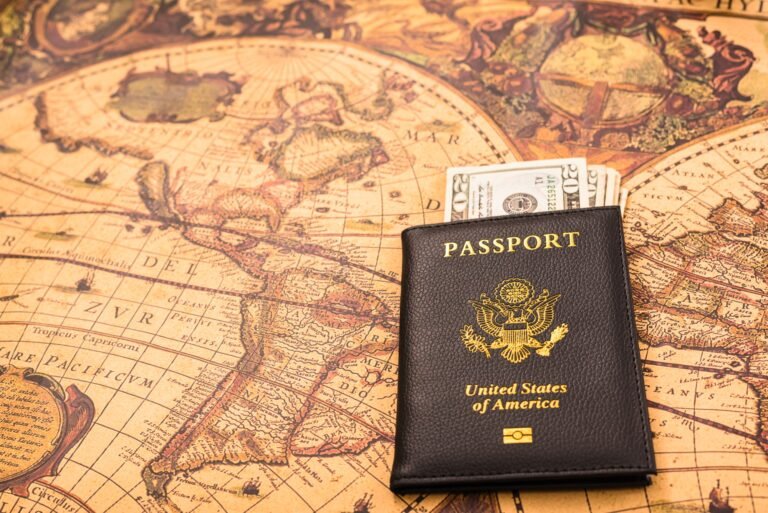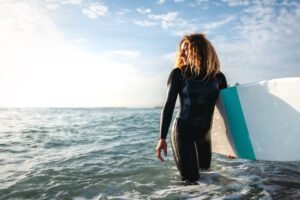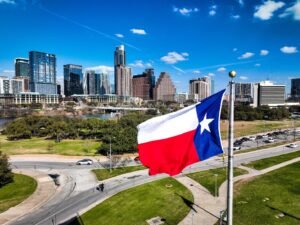Caribbean Citizenship by Investment (CBI) programs are becoming increasingly popular, but not every option is right for everyone. The best program for you depends on your goals. For example, a solo entrepreneur looking for better access to the U.S. may need something completely different from a family focused on long-term tax benefits.
Whether your priority is mobility, security, asset protection, or creating generational advantages, choosing a program that truly meets your needs is essential. In this article, we’ll break down the key factors to consider, beyond the flashy marketing, so you can make an informed decision that works for you.
Define Your Primary Objective
Before diving into the costs or benefits of second citizenship, it’s essential to first understand your primary goal. Each CBI program caters to different needs, so knowing your priorities will help you choose the right one. Here’s a breakdown of what each program is best suited for:
- Global mobility: If your primary focus is international travel, St. Kitts & Nevis and Grenada are excellent options. Both provide visa-free or visa-on-arrival access to over 140 countries, including the UK and the Schengen Area. Grenada stands out because of its E-2 visa treaty with the United States, allowing eligible citizens to invest and live in the U.S.
- Wealth protection: For high-net-worth individuals focused on tax efficiency and safeguarding their assets, St. Lucia and Antigua & Barbuda offer significant benefits. Both have no taxes on wealth, inheritance, or capital gains, making them ideal for investors with offshore assets.
- Family relocation: Families looking to relocate should consider Dominica as a great choice. It’s known for its affordability, transparent process, and consistently high rankings among CBI programs. It also has one of the lowest application costs for families, including spouses and dependents. Plus, dual citizenship is allowed, and there are no residency requirements.
- Cost-effective citizenship: If cost is a key factor, St. Lucia is one of the most budget-friendly options. Its government donation route starts at just $100,000 for a single applicant, making it an excellent choice for individuals seeking affordable second citizenship.
Aligning your choice with your priorities allows you to make a more informed decision about the best Caribbean Citizenship by Investment program for your needs, helping you maximize the value of your second citizenship.
Real Costs of Caribbean Citizenship by Investment
When exploring CBI programs in the Caribbean, it’s easy to focus on the headline figures, like “$100,000 investment.” However, the total cost can vary significantly depending on the program, your chosen route, and how many people are applying with you.
Most Caribbean CBI programs offer two main options: a non-refundable donation to a government fund or an investment in real estate. Let’s break down the costs for each option and what you need to consider before deciding.
Government Contribution (Donation Route)
Donation is often the simplest and most direct way to gain citizenship, especially for single applicants. In popular programs like those in St. Lucia and Dominica, the starting cost for a single applicant is about $100,000. If you’re applying as a family of four, the total usually goes up to $175,000–$200,000. Additional dependents, such as children or elderly relatives, can add $25,000–$50,000 per person to the overall contribution.
While the donation is non-refundable, this path offers a fast and straightforward process. It’s ideal for individuals or families who want citizenship without the complexity of managing assets like real estate.
Real Estate Investment Route
The real estate route may be more appealing if you’re looking to invest in an asset. This option generally requires purchasing property worth at least $200,000–$220,000, with the condition that it must be held for 5–7 years, depending on the program.
However, the real estate path comes with additional costs. Government fees, legal expenses, and due diligence checks can add $30,000–$50,000 to the total price. For example, in Dominica, while real estate can offer long-term value, resale restrictions often apply. This makes it less flexible for those who want to sell or flip the property quickly after obtaining citizenship.
Additional Costs to Keep in Mind
Beyond the main investment, several mandatory fees can significantly increase the overall cost:
- Due diligence fees: $7,500–$15,000 for the principal applicant, plus $4,000–$10,000 for each dependent.
- Processing fees: Typically $3,000–$5,000, depending on the program.
- Agent commissions: Sometimes included in the investment price, but can still add to the cost.
If you’re choosing the real estate route, don’t forget to account for annual maintenance fees, property taxes, and closing costs, which can affect your long-term financial commitment.
Comparing Programs for Families vs. Single Applicants
St. Lucia is often the most affordable program for single applicants via the donation route. However, if you’re applying as a family, countries like Antigua and Dominica may offer better value due to their family-friendly pricing structures.
Real estate might seem attractive as a recoverable investment, but factors like resale restrictions and long holding periods can reduce flexibility. Families looking for lower costs and simplicity may find the donation route more suitable.
Copyright: Unsplash I License: CC0 Domain
Processing Times and Bureaucracy for CBI Programs
One key factor to consider when applying for a CBI program is processing time. Most programs take about three to six months to process applications, provided all documents are complete and there are no issues during due diligence. However, not all programs are equally efficient, and some offer faster options.
For example, St. Kitts & Nevis is well-known for its fast-track processing option. With this service, applicants can receive approval in as little as 60 days, but it does come with additional fees. Grenada, however, is popular among families because of its smoother administrative process and flexible requirements for dependents.
The citizenship by investment program in Grenada is especially appealing for applicants who prioritize efficiency and family-friendly terms, as it has relatively fast processing times, flexible options for including dependents, and visa-free access benefits that extend to the whole family. Similarly, the St. Kitts and Nevis citizenship by investment program has a fast-track option, with approvals possible in as little as 60 days, making it attractive to those who value speed and convenience.
It’s important to note that programs with stricter due diligence processes may take longer but often come with added benefits. Countries with rigorous background checks tend to have more reliable passports, offering stronger visa-free travel options and facing less scrutiny from banks and governments worldwide.
To avoid delays in the application process, ensure all your documents are complete, consistent, and adequately certified before submission. Many delays occur due to errors or missing information, so working with authorized and experienced agents can make a big difference. A smooth application process depends on your preparation and the program’s efficiency.
The Best Program Is the One That Fits
Choosing a Caribbean CBI program is not just about picking the most popular or cheapest option; it’s about finding the right fit for your needs. Whether your focus is on travel freedom, tax benefits, or providing a better future for your family, taking a strategic approach is essential.
Don’t let flashy marketing or emotional decisions guide you. Instead, think long-term. Look for programs that offer security, legal stability, and absolute value over time. Consult licensed professionals who can guide you through the legal, financial, and procedural details. Remember, this isn’t just about getting a passport—it’s an investment in your future.


































